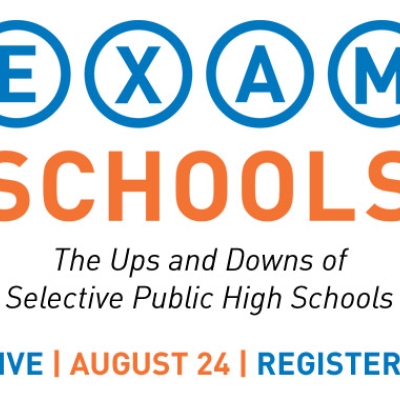It seems the largest battle in education policy today centers on the question of whether or not the Obama administration cheerleading for the Common Core State Standards, a state-led initiative, represents an existential threat to federalism. Serious Common Core supporters concede that the federal government (unwisely) dangled incentives for swift state adoption of the standards, while pointing out that the vast majority of instructional decisions will now, as before, remain with local school boards and educators. On the other hand, serious opponents admit as much but worry that locals will have to make significant changes to meet these higher targets and say it is only a matter of time before we see a proposal for a national curriculum. I, for one, think even casual observation of the current debate over standards shows the possibility of a national curriculum to be so remote as to make it not worth discussing, except to say that if it were proposed, many Common Core supporters (myself included) would strongly oppose it.
The “federal overreach” argument used by Common Core opponents is quite perplexing, not only because some claims are so wildly exaggerated, but also because they all but ignore (and thereby excuse) actual and obvious examples of overreach with much larger potential consequences for federalism. If the Common Core debate is truly just a principled stand for states’ rights, why haven’t we heard a word about the specific requirements on school turnaround or teacher quality within the Race to the Top competition? Where was the conservative backlash against the clear disrespect shown to the State of California through the Obama administration’s district waivers? And if we are to believe the Common Core was forced upon states by the federal government, when did state legislatures suddenly get the power (that opponents are demanding be exercised) to undo the standards? Finally, if, as many opponents claim, the Common Core is basically Obamacare for education, then why isn’t this battle, like Obamacare, instead being fought in Congress? Even if you believe no amount of federal involvement in education can be tolerated, why not at least go after the more egregious examples of federal overreach (which the Common Core clearly is not)?
In fact, there is a far clearer opportunity for conservative proponents of both federalism and education reform to fight the Obama administration (and any conservatives’ least favorite administration official, Eric Holder, no less) and win. In August, the Obama administration’s Department of Justice sued Louisiana over its new voucher program, citing concerns it would lead to greater racial segregation—despite some pretty clear evidence to the contrary. At the time, it seemed this was a bad issue for the administration on both policy and political grounds. Now, Governor Jindal and powerful conservative allies have fought back—Eric Cantor and Reince Priebus have both made recent visits to Louisiana voucher schools—and the weight of Obamacare on other liberal priorities seems to be getting heavier by the day. So Holder and Obama are modifying their strategy, even if they don’t seem ready to give up on their attacks on vouchers just yet.
Despite some reports Tuesday that the case had been dropped in its entirety, oral arguments are still set for today. On a positive note, however, it appeared that the U.S. DOJ would take a slightly gentler approach (i.e., one that is more in line with political realities). Rather than attempt to kill the program outright, DOJ would instead seek a judge’s approval to “monitor” it by checking the racial makeup of applicants before students were allowed to attend the school of their choice. Governor Jindal, in a press release, worried this would amount to, “the Department of Justice’s new Washington strategy to red tape and regulate the program to death. The Department of Justice’s new position is that it wants bureaucrats in Washington to have the authority to decide where Louisiana children get an education.”
Just this past Friday afternoon, the U.S. Government Accountability Office issued a report attacking the D.C. voucher program in a move that some feel was politically motivated. Clearly, some in Washington have only begun to fight against disadvantaged children’s right to choose a better school. Hopefully, the feds truly have felt some pressure and will at least think twice before picking new fights with school-voucher programs. Perhaps also some conservatives engaged in other efforts that will do little good for education reform or federalism might see this as an opportunity to instead achieve a major victory for the principles they hold dear and thousands of children in want of a better education.



